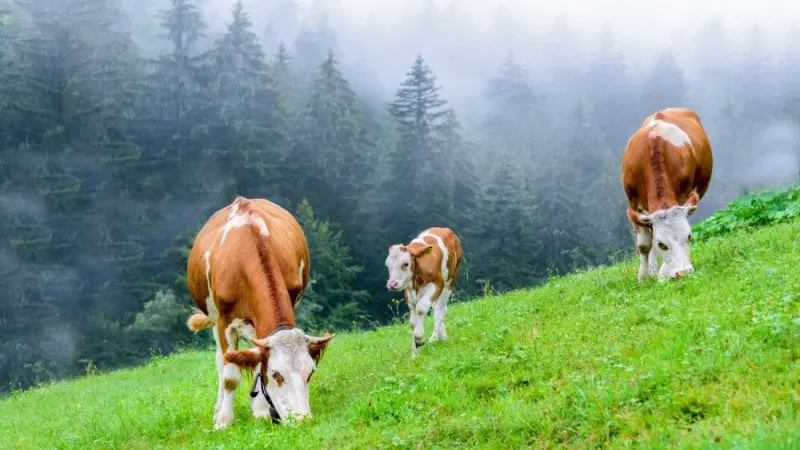Viewpoint: Animal agriculture is growing more sustainable, so don’t blame it for climate change
Viewpoint: Animal agriculture is growing more sustainable, so don’t blame it for climate change


Simply put, U.S. cattle aren’t the major driver of climate change. So Americans can feel good about whatever kind of burger they put on their grill this barbecue season.
Many people believe — mistakenly — that beef is uniquely bad for the environment. This confusion stems, in large part, from faulty math. Consider a recent article, which pegged the global mean emissions for 2.2 pounds (one kilogram) of beef at 220 pounds of carbon dioxide equivalents, the standard unit of comparison for greenhouse gases.
That figure includes emissions of methane, a greenhouse gas that cows and other farm animals belch out during their digestive process. Though potent in the near term, methane from cattle is a cyclical gas. Consider the full cycle — the carbon contained in methane (CH4) from cattle begins its journey in the atmosphere as carbon dioxide (CO2), which is captured by plants as part of photosynthesis. Plants turn this carbon into carbohydrates, which are then consumed by cattle. These cattle then release some of the carbohydrate carbon as methane, which over the course of 10 years, is destroyed and converted back to CO2. That carbon isn’t new, but recycled carbon, returned to the atmosphere.
…
According to the United Nations Food and Agriculture Organization’s statistical database, total direct greenhouse gas emissions from all U.S. livestock have declined 11.3% since 1961, while livestock production has more than doubled.
Read the original post

 | Videos | More... |

Video: Nuclear energy will destroy us? Global warming is an existential threat? Chemicals are massacring bees? Donate to the Green Industrial Complex!
 | Bees & Pollinators | More... |

GLP podcast: Science journalism is a mess. Here’s how to fix it

Mosquito massacre: Can we safely tackle malaria with a CRISPR gene drive?

Are we facing an ‘Insect Apocalypse’ caused by ‘intensive, industrial’ farming and agricultural chemicals? The media say yes; Science says ‘no’
 | Infographics | More... |

Infographic: Global regulatory and health research agencies on whether glyphosate causes cancer
 | GMO FAQs | More... |

Why is there controversy over GMO foods but not GMO drugs?

How are GMOs labeled around the world?

How does genetic engineering differ from conventional breeding?
 | GLP Profiles | More... |

Alex Jones: Right-wing conspiracy theorist stokes fear of GMOs, pesticides to sell ‘health supplements’




 California, Washington, Oregon forge immunization alliance to safeguard vaccine access against federal undermining
California, Washington, Oregon forge immunization alliance to safeguard vaccine access against federal undermining Trust issues: What happens when therapists use ChatGPT?
Trust issues: What happens when therapists use ChatGPT? Fighting deforestation with CO2: Biotechnology breakthrough creates sustainable palm oil alternative for cosmetics
Fighting deforestation with CO2: Biotechnology breakthrough creates sustainable palm oil alternative for cosmetics Viewpoint — Fact checking MAHA mythmakers: How wellness influencers and RFK, Jr. undermine American science and health
Viewpoint — Fact checking MAHA mythmakers: How wellness influencers and RFK, Jr. undermine American science and health 30-year-old tomato line shows genetic resistance to devastating virus
30-year-old tomato line shows genetic resistance to devastating virus The free-range chicken dilemma: Better for birds, but with substantial costs
The free-range chicken dilemma: Better for birds, but with substantial costs Viewpoint: Video — Big Solar is gobbling up productive agricultural land and hurting farmers yet providing little energy or sustainabilty gains
Viewpoint: Video — Big Solar is gobbling up productive agricultural land and hurting farmers yet providing little energy or sustainabilty gains ‘You have to treat the brain first’:Rethinking chronic pain with Sanjay Gupta
‘You have to treat the brain first’:Rethinking chronic pain with Sanjay Gupta
